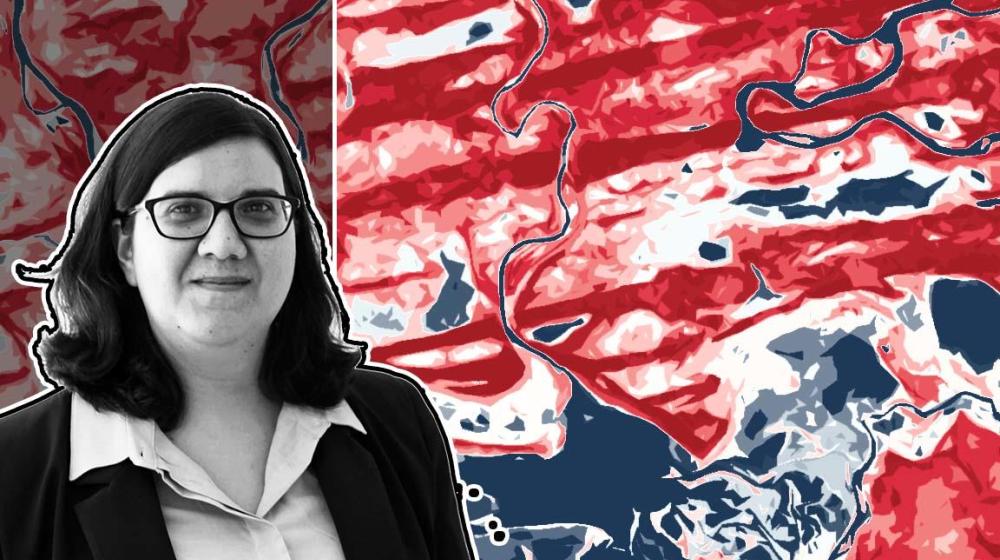‘We will not be bullied!’ declared Cyril Ramaphosa, President of South Africa, in his address to the nation on 6 February 2025. This was in response to recent remarks by US officials and to Secretary of State Marco Rubio’s decision to snub the upcoming G20 Ministerial meeting in Johannesburg.
While tension seemed inevitable between the US and South Africa following Trump’s election – particularly over the referral of Israel to the International Court of Justice and the African Growth and Opportunity Act (AGOA) – the current level of pressure now leaves little doubt that Washington's intentions extend beyond undermining multilateralism. It now seems focused on undermining diplomacy itself, unless the US is at the helm.
A recent bill which permits the expropriation of land in the national interest is at the heart of the debate. Similar to the eminent domain in the US, the bill repeals the expropriation act of 1975 and purportedly aligns with the 1996 South Africa Constitution which protects private property (art. 25). However, it also includes provisions for limited cases of ‘nil compensation’ (clause 12) which has raised concerns, notably from the Democratic Alliance (DA). While the DA reassured the US that no land grab is taking place, it declared its intention to challenge the bill in court.
Regardless of whether it is misinformed or not, the US’s focus on South Africa’s land issue seems primarily aimed at questioning the G20’s environmental and equality agenda, while also exerting pressure on South Africa’s first coalition government. Traditionally, the US has aligned more closely with the Democratic Alliance (DA) than with the African National Congress (ANC), and this could be an effort to test the cohesion of the coalition.
In this context, President Ramaphosa’s words also seem to be a call to his coalition to resist external pressures that could divide them. As the G20 chair, South Africa’s leadership and unity are far more crucial than any bilateral dispute.
Back to diplomacy: South Africa and the EU
‘At the table, not on the menu’ is a slogan that resonates with many who oppose Trump’s confrontational policies. This includes the EU, which has been vocal about its concerns, particularly regarding Trump’s pursuit of Greenland.
Despite their differences, notably over the Russia’s war of aggression against Ukraine, South Africa and the EU now find common ground on diplomacy, multilateralism, and even on some shared policies. In November 2024, at the G20 summit in Brazil, President Ramaphosa and European Commission President Ursula von der Leyen launched the global campaign ‘Scaling up Renewables in Africa’, an initiative aimed at leveraging both public and private funding to expand renewable energy across Africa. This reflects South Africa’s priorities, which also include the development of the mining sector. At the recent Mining Indaba Conference, where the country sought to attract investments in the mining sector, the EU renewed its support to sustainable mining partnerships, as both parties seek to cooperate in developing critical raw material (CRM) value chains.
South Africa and the EU now find common ground on diplomacy, multilateralism, and even on some shared policies.
Additionally, in 2021, South Africa, along with France, Germany, the United Kingdom, the US and the EU, launched the Just Energy Transition Partnership to support its own decarbonisation efforts. While the US may abandon this initiative, like it dropped USAID, other partners are likely to pursue this agenda – as indeed they should. The EU’s strategic partnership with South Africa and the economic partnership agreement (EPA) with the Southern African Development Community (SADC) underscore their shared focus on prosperity, diplomacy and sustainable development. The upcoming EU-South Africa summit in March 2025 will highlight the importance of this partnership and possibly bring them even closer in deepening cooperation for their mutual benefit. That includes multilateralism, but also areas such as energy, education, research and trade.
Multilateralism at stake: South Africa’s G20 leadership
These cooperative efforts extend to international forums such as the G20, whose purpose is to prioritise diplomacy in addressing global challenges, such as financing for development and climate action. This collaboration is in line with South Africa’s leadership goals for the G20.
As the US is set to assume the G20 chairmanship after South Africa in 2026, its decision to skip the upcoming ministerial meeting on 20-21 February casts doubt on the prospects of a constructive partnership between the two countries during the G20 presidency transition. The litmus test will come during the Johannesburg summit in November. If the US does not attend, the G20 may be forced to reassess whether the US can uphold its leadership in 2026 and may consider inviting another willing member to help sustain the forum’s integrity.
South Africa’s commitment to multilateralism and its efforts to foster greater cohesion within its government represent crucial steps for the country and for the continent.
Whether the EU could step in may be a question worth asking. However, in a period of increasing global fragmentation, South Africa’s commitment to multilateralism and its efforts to foster greater cohesion within its government represent crucial steps for the country and for the continent. Particularly as the African Union joined the G20 in 2023 and South Africa is advocating for the inclusion of more African members, notably Nigeria.
Despite external pressures, South Africa is defending diplomacy and multilateral cooperation, while navigating internal complexities. The EU, sharing similar values, will likely continue to be a key ally in these efforts. Both continents will need to stand together as the G20 moves forward into a future shaped by global cooperation – or further fragmentation.


